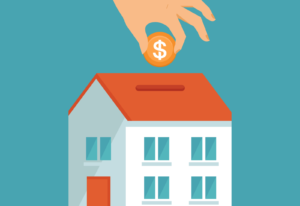As we move into what some are calling the late pandemic phase, now is the time to invest in Spain real estate.
Earlier this year I wrote about buying property in Spain, concluding that although it’s a great time to acquire vacation property (or a primary residence) in Spain, purchasers should be certain they thoroughly understand the legal and tax implications. There are no restrictions on purchases of real estate in Spain by foreigners, and foreigners can easily get mortgages.
Thanks in large part to pent-up demand following the easing of pandemic-related movement restrictions, overall housing prices across Spain are expected to rise three percent in 2021, and a further 10 percent in 2022. Prices remain significantly depressed from their historic peaks, however, and this is especially true in areas best known for vacation properties.
In addition, in September 2013 the Spanish government launched a “Golden Visa” program to stimulate foreign investment in Spanish real estate, industry and public debt. In 2015, amendments to the program added additional incentives and made it faster and easier to secure Spain visas and work permits.
We think Spain’s Golden Visa is one of the EU’s most attractive investment programs for non-EU investors. It can provide Spanish residency to the investor’s immediate family, which can include not only married partners but also common law partners, as well as economically dependent children, including grown-up children, and parents.
The least expensive (and often the easiest as well) way to qualify for a Golden Visa is by investing at least €500,000 in real estate, and earlier this year I wrote in detail about the program, which also offers visa pathways to investors (of at least €1 million) in a Spanish company, investment fund(s) or venture capital fund(s), as well as for buyers (of at least €2 million) of Spanish government bonds.
If you have been considering buying Spain real estate, the effects of the pandemic have been felt unevenly across the country’s regions, and geography and infrastructure will play a role in your purchasing decision. While a great deal of investigation can be done online, especially if you are familiar with the country, the current growth in Spain’s real estate market (even among domestic purchasers) is in large part the result of buyers getting out and looking at properties in person.
What are the main things that foreign buyers need to think about? I wrote comprehensively about this earlier in the year, but in brief, purchasers of Spain real estate should know the following:
- Whether or not there are any liens on the property.
- Whether the seller is in fact the owner recorded at the Property Registry.
- Whether municipal fees and property taxes (impuesto sobre bienes inmuebles, or IBI) have been paid for the last four years.
- Which party will be paying the broker (normally this would be the seller, but some brokers try to collect from both parties and it is important to understand clearly every document you sign).
- What the local tax rates are (they vary by region and municipality).
- Property transactions from private sellers trigger a transfer tax, which depending on location can be around 10% of property value.
- Property transactions from property developers are subject to Spain’s value added tax (VAT), which is 21 percent.
- If a mortgage is obtained, VAT and stamp duty will also be due.
- Regardless of whether or not the purchaser is a resident of Spain (if she or he is not a Spanish national), she or he will need a Spanish ID number for foreigners, the so-called NIE (número de identificación de extranjeros), which among other things, is used to pay taxes after the purchase transaction is completed. Lately, appointments for NIE applications have been hard to get and might have to be applied for in the investor’s home country; as a result, more time may be needed in preparing the transaction, which can only be closed once the investor receives his/her NIE.
- In Spain it is common to sign a preliminary contract, the so-called “Arras contract”, which commonly provides for down payments of 5 to 10 percent of the purchase price.
- If you plan to rent out your property at all, know that even non-residents must declare property rental income to the Spanish tax authorities.
As always, we recommend retaining expert legal counsel to support you throughout the real estate purchase process. You will need a trusted guide to help you navigate Spain’s legal system, tax code and bureaucracy, and to advise you on local contexts, especially when you’re doing business with companies and individuals that are operating in their native cultures and legal systems. And if you are not a good Spanish speaker, I recommend obtaining the support of a Spanish-fluent friend or trusted colleague to ensure that you understand completely all your obligations.
That said, now is the time for Spain real estate.
P.S. In October, my colleague Simon Malinowski hosted a webinar with our colleagues at Monereo Meyer Abogados on the subject of “Investing in Spain Real Estate as a Foreign Investor”. If you’re interested, the replay video on Spain’s property market is available here.


























